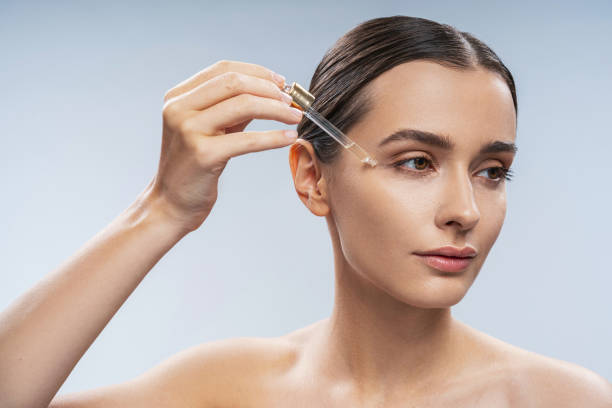What is the story behind serums used in cosmetics?
What do Serums really do for the Skin?
Face Serum is a lightweight product that contains concentrated active ingredients.
There are many different types of serum, each with a unique purpose and ingredients. Some serums help to brighten your skin or reduce blemishes, while others focus on boosting hydration or fighting the signs of aging.
Serums absorb deep into your skin.
Confused if you need a serum?
Serum can be a good addition to every once routine;
- If you want to target a specific concern like dullness, dark spots, pigmentation, aging or acne scarring, etc.
- If you live in a polluted area or spend a lot of time outdoors, serums can help with free radical damage to the skin cells.
- If you prefer a weightless and non-greasy finish with your skincare products.
- If you have mature skin, a good serum could be a great addition & helps with a strong skin barrier
You don’t need a serum if you are happy with your skin condition;
- If you have a chronic skin condition such as eczema or rosacea, serums may cause aggravation.
- If you would like to keep your skincare routine very simple then one can avoid using serum
Types of serum
There are many types of serum on market. You must choose the right serum which is required for your skin. Serum such as brightening serums, hydrating serums, anti-aging serums, anti-oxidant serums, texture improvement serums, clarifying serums, pore minimizing serums, acne & sensitive skin serums.
When and how to use a Serum?
It is a daily regime and everyone must do CTM i.e. cleansing, toning, and moisturizing. So you can add serum in this after the first steps of cleaning your skin apply toner & then serum can be applied before moisturizer. After this apply Sunscreen.
Why apply before moisturizer?
The serum penetrates deep into the skin. Moisturizer won’t penetrate below the surface layer of the skin. Serums work on targeted concerns like acne, scars, discoloration, wrinkles, etc. The formula is lightweight and has a thinner consistency. So this step comes before moisturizer. Moisturizers create a physical barrier to lock moisture. The formula is thicker and creamier than serums. It should be applied after serums and before SPF.
How to use it?
1) Leave skin slightly damp after cleansing and toning.
2) Take 2-3 drops/pumps of serum onto your fingertips.
3) Use your fingertips to gently press the serum into the skin.
4) Spread the serum evenly & don’t forget your neck.
5) Tighten the dropper securely after each other.
Let’s discuss some serums….
|
VITAMIN C Serum |
|
|
How does it help?
|
|
|
How & when to apply? |
|
|
Suits |
|
|
Effective when |
|
|
Concern |
|
|
NIACINAMIDE SERUM |
|
|
What does it do? |
|
|
When to use it?
|
|
|
Great for
|
|
|
Note
|
|
|
RETINOL SERUM |
|
|
What does it do? |
|
|
When to use it?
|
|
|
When to start? |
|
|
Visible results |
|
|
Downside |
|
|
Note
|
|
|
AHA’S SERUM |
|
|
What does it do? |
|
|
Common AHA’s? |
|
|
When to use it? |
|
|
Skin Type |
|
|
Downside |
|
|
Note |
|
|
BHA’S SERUM |
|
|
What does it do?
|
|
|
When to apply? |
|
|
Great for |
|
|
Downside |
|
|
Tip |
|
by Svetlya Anukudinova
Tue, 14 Jun 22 11:39:02
by Wilson Levi
Tue, 03 Oct 23 08:58:04
by Wilson Levi
Tue, 03 Oct 23 08:47:41
Topics
Jammu & Kashmir - History, Culture & Traditions | J&K Current Trends | Social Network | Health | Lifestyle | Human Resources | Analytics | Cosmetics | Cosmetology | Forms | Jobs
Related blogs
Benefits of Aegle marmelos or Bael extract for Skin and Hair | Use of Aegle marmelos extract in...
What are the Benefits of Aegle marmelos extract...How cosmetic industry in Belgium has changed over time? | Cosmetic Industry in Belgium
The cosmetic industry in Belgium has a rich...Benefits of Custard Apple extract for Skin, and Hair | Use of Custard Apple Extract in Cosmetics or...
Custard apple, also known as Annona cherimola, is...Benefits of Guava extract for Skin, and Hair | Use of Guava Extract in Cosmetics or Beauty Products
Guava, the tropical fruit celebrated for its...
Quote of the Day
"Time Flies Over, but Leaves its Shadows Behind"



